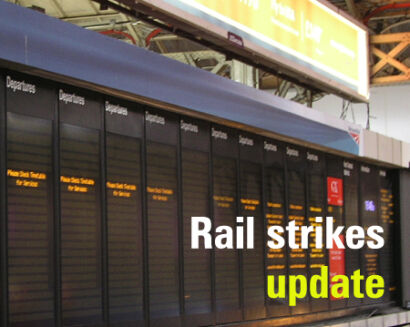ASLEF has called another five days of 24-hour strikes on LNER from 5 to 9 February, in what could be the first direct challenge to the new minimum service levels law, which requires a set percentage of staff to continue working during strikes.
LNER is one of four English operators who are owned by the state, after previous contracts with the private sector were either cancelled or not re-awarded when they expired.
ASLEF has already called rolling strikes for a week from 30 January, which will affect most operators in England for one day.
As well as the new LNER walkouts in early February, ASLEF drivers will also refuse to work any non-contractual overtime from 7 to 10 February.
Reports that LNER would impose minimum service levels for the first time, although not confirmed, may have caused the latest walkouts.
ASLEF general secretary Mick Whelan said: ‘We have given LNER management – and their government counterparts who hold the purse strings – every opportunity to come to the table and they have so far made no realistic offer to our members.
‘We have not heard from the transport secretary since December 2022, or from the train operating companies since April 2023. It's time for them to come to the table and work with us to resolve this dispute so we can all move forward and get our railway back on track.’
The Guardian has quoted a ‘government source’ as saying: ‘The train companies lobbied us for this ahead of the 2019 manifesto and they’ve got what they wanted so we would very much hope that they would use those powers. We aren’t going to grandstand and publicly urge them to do it but we quietly expect them to do so.’


